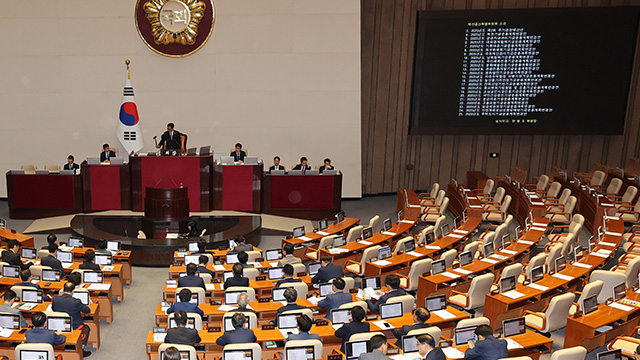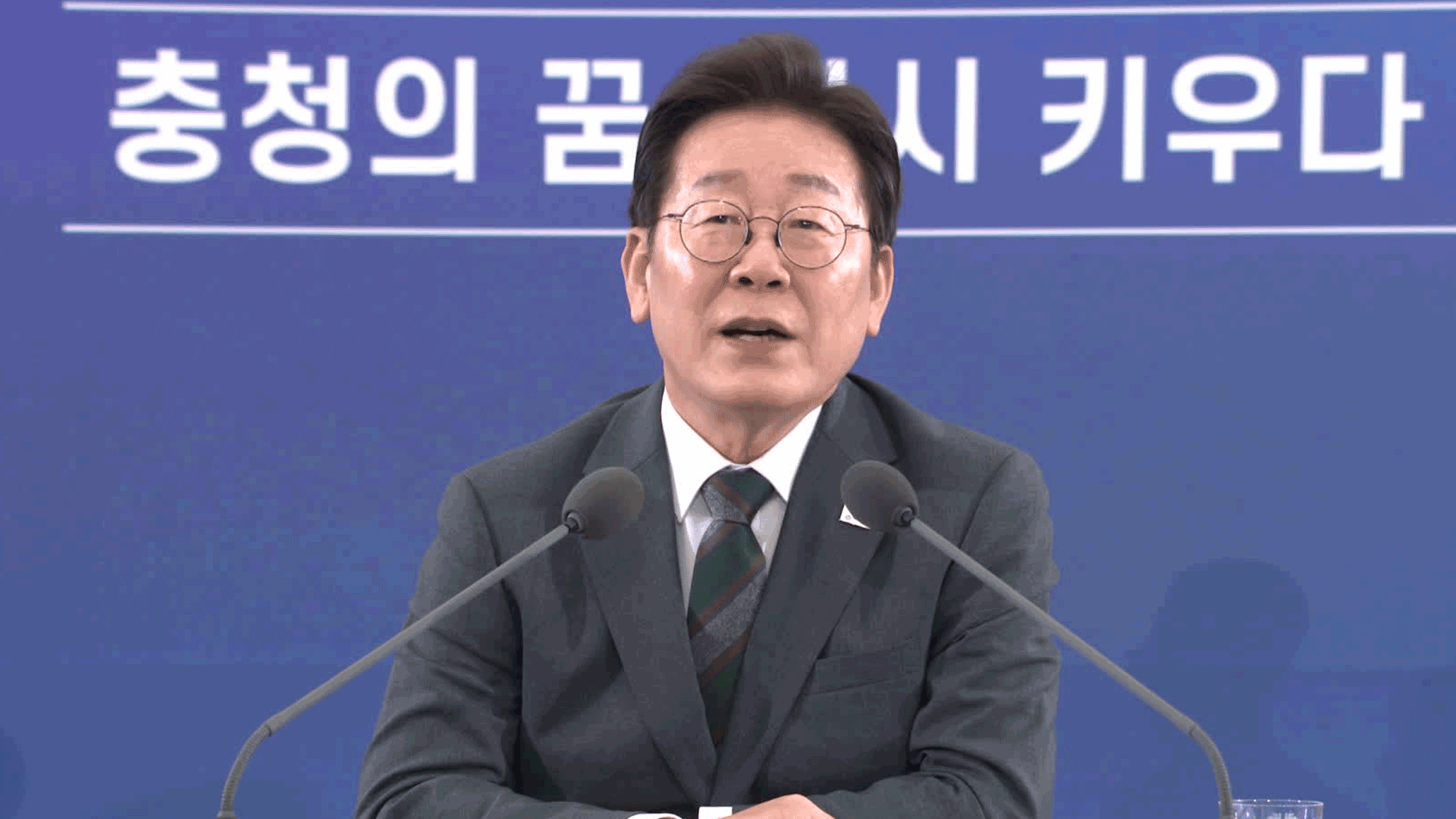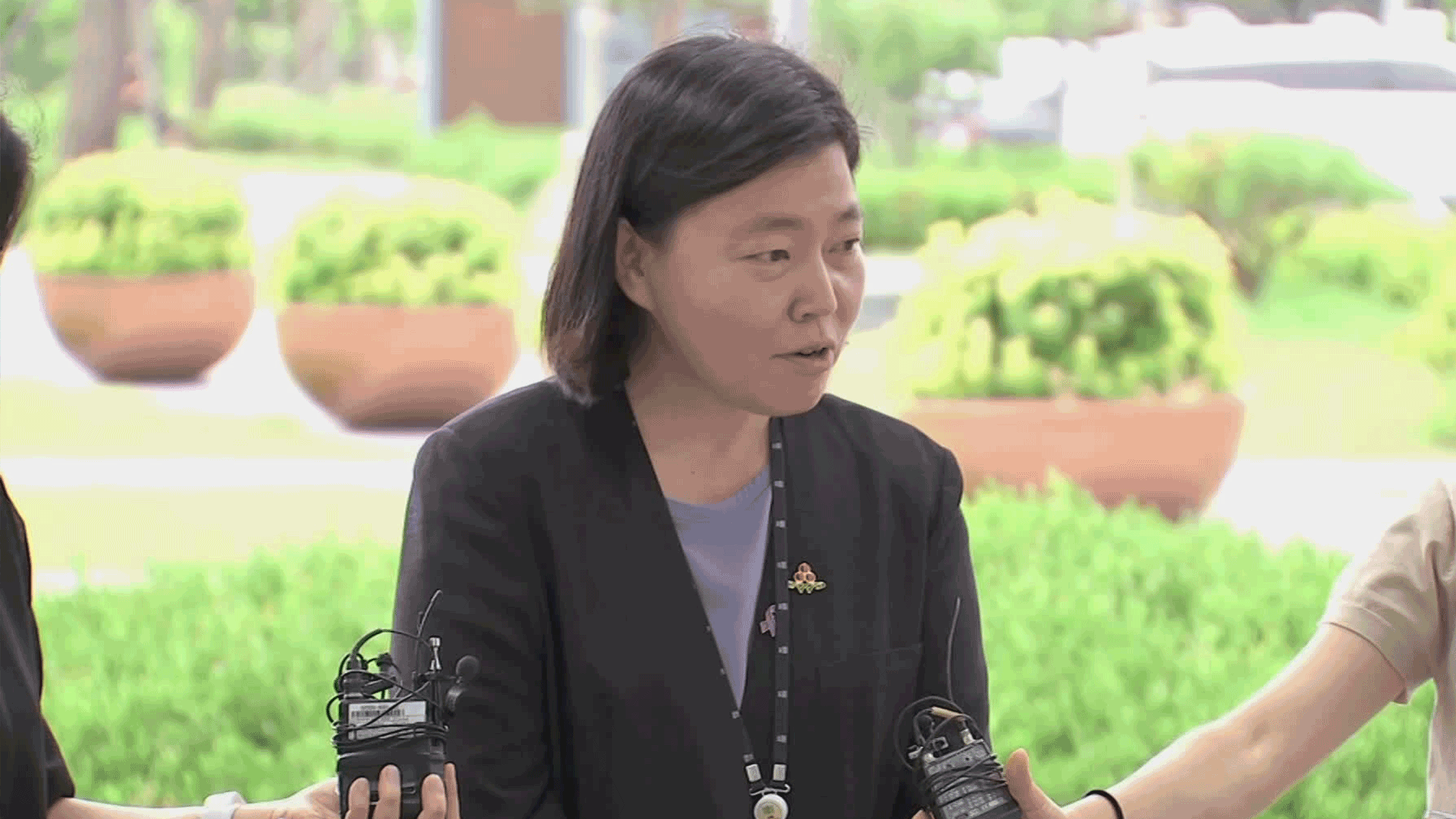[Anchor]
There is a regulation that countries around the world are voicing in unison.
It is regulation against social media use for the youth.
There have been bills that prohibit social media use until a certain age, and even bills that completely ban the use of smartphones.
Our Paris correspondent Lee Hwa-jin reports.
[Report]
A bishop conducting mass is approached by someone wielding a weapon.
The incident, which was broadcast live online, spread across social media, shocking the Australian society.
The perpetrator, who was caught at the scene, is a teenager, and police investigations revealed that he had been interacting with extremists on social media.
Following the incident, Australia established a law in November of last year that prohibits social media use for those under 16 years old.
Even with parental consent, it is not allowed.
[Anthony Albanese/Australian Prime Minister: "Social media is doing social harm to our young Australians. The safety and mental health of our young people has to be our priority."]
There is a global consensus on the necessity of regulating social media use among the youth.
A survey conducted last year among adults in 30 countries found that two-thirds of respondents supported a law banning social media use for those under 14 years old.
There are also countries, particularly in Europe, that completely ban smartphone use for the youth.
Starting with France, the UK, Belgium, and the Netherlands have banned smartphone use in all schools, and particularly France and the UK are also pushing policies to prohibit the sale of smartphones to those below a certain age.
In the European society, there are counterarguments that laws banning social use for the youth suppress freedom of expression.
However, there is a social consensus that protecting the youth is more important, even if it means limiting some freedoms.
This is Lee Hwa-jin from KBS News in Paris.
There is a regulation that countries around the world are voicing in unison.
It is regulation against social media use for the youth.
There have been bills that prohibit social media use until a certain age, and even bills that completely ban the use of smartphones.
Our Paris correspondent Lee Hwa-jin reports.
[Report]
A bishop conducting mass is approached by someone wielding a weapon.
The incident, which was broadcast live online, spread across social media, shocking the Australian society.
The perpetrator, who was caught at the scene, is a teenager, and police investigations revealed that he had been interacting with extremists on social media.
Following the incident, Australia established a law in November of last year that prohibits social media use for those under 16 years old.
Even with parental consent, it is not allowed.
[Anthony Albanese/Australian Prime Minister: "Social media is doing social harm to our young Australians. The safety and mental health of our young people has to be our priority."]
There is a global consensus on the necessity of regulating social media use among the youth.
A survey conducted last year among adults in 30 countries found that two-thirds of respondents supported a law banning social media use for those under 14 years old.
There are also countries, particularly in Europe, that completely ban smartphone use for the youth.
Starting with France, the UK, Belgium, and the Netherlands have banned smartphone use in all schools, and particularly France and the UK are also pushing policies to prohibit the sale of smartphones to those below a certain age.
In the European society, there are counterarguments that laws banning social use for the youth suppress freedom of expression.
However, there is a social consensus that protecting the youth is more important, even if it means limiting some freedoms.
This is Lee Hwa-jin from KBS News in Paris.
■ 제보하기
▷ 카카오톡 : 'KBS제보' 검색, 채널 추가
▷ 전화 : 02-781-1234, 4444
▷ 이메일 : kbs1234@kbs.co.kr
▷ 유튜브, 네이버, 카카오에서도 KBS뉴스를 구독해주세요!
- Social media limit for youth
-
- 입력 2025-02-01 00:10:09

[Anchor]
There is a regulation that countries around the world are voicing in unison.
It is regulation against social media use for the youth.
There have been bills that prohibit social media use until a certain age, and even bills that completely ban the use of smartphones.
Our Paris correspondent Lee Hwa-jin reports.
[Report]
A bishop conducting mass is approached by someone wielding a weapon.
The incident, which was broadcast live online, spread across social media, shocking the Australian society.
The perpetrator, who was caught at the scene, is a teenager, and police investigations revealed that he had been interacting with extremists on social media.
Following the incident, Australia established a law in November of last year that prohibits social media use for those under 16 years old.
Even with parental consent, it is not allowed.
[Anthony Albanese/Australian Prime Minister: "Social media is doing social harm to our young Australians. The safety and mental health of our young people has to be our priority."]
There is a global consensus on the necessity of regulating social media use among the youth.
A survey conducted last year among adults in 30 countries found that two-thirds of respondents supported a law banning social media use for those under 14 years old.
There are also countries, particularly in Europe, that completely ban smartphone use for the youth.
Starting with France, the UK, Belgium, and the Netherlands have banned smartphone use in all schools, and particularly France and the UK are also pushing policies to prohibit the sale of smartphones to those below a certain age.
In the European society, there are counterarguments that laws banning social use for the youth suppress freedom of expression.
However, there is a social consensus that protecting the youth is more important, even if it means limiting some freedoms.
This is Lee Hwa-jin from KBS News in Paris.
There is a regulation that countries around the world are voicing in unison.
It is regulation against social media use for the youth.
There have been bills that prohibit social media use until a certain age, and even bills that completely ban the use of smartphones.
Our Paris correspondent Lee Hwa-jin reports.
[Report]
A bishop conducting mass is approached by someone wielding a weapon.
The incident, which was broadcast live online, spread across social media, shocking the Australian society.
The perpetrator, who was caught at the scene, is a teenager, and police investigations revealed that he had been interacting with extremists on social media.
Following the incident, Australia established a law in November of last year that prohibits social media use for those under 16 years old.
Even with parental consent, it is not allowed.
[Anthony Albanese/Australian Prime Minister: "Social media is doing social harm to our young Australians. The safety and mental health of our young people has to be our priority."]
There is a global consensus on the necessity of regulating social media use among the youth.
A survey conducted last year among adults in 30 countries found that two-thirds of respondents supported a law banning social media use for those under 14 years old.
There are also countries, particularly in Europe, that completely ban smartphone use for the youth.
Starting with France, the UK, Belgium, and the Netherlands have banned smartphone use in all schools, and particularly France and the UK are also pushing policies to prohibit the sale of smartphones to those below a certain age.
In the European society, there are counterarguments that laws banning social use for the youth suppress freedom of expression.
However, there is a social consensus that protecting the youth is more important, even if it means limiting some freedoms.
This is Lee Hwa-jin from KBS News in Paris.
-
-

이화진 기자 hosky@kbs.co.kr
이화진 기자의 기사 모음
-
이 기사가 좋으셨다면
-
좋아요
0
-
응원해요
0
-
후속 원해요
0















이 기사에 대한 의견을 남겨주세요.